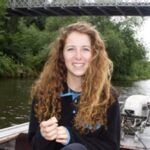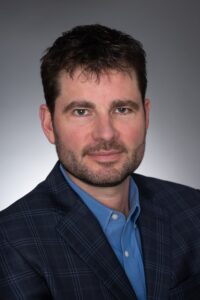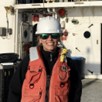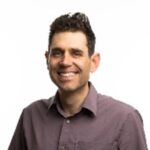Pacific Offshore Wind: Environmental Permitting
July 13, 2022 | Online :: Central Time
The Bureau of Ocean Energy Management (BOEM) is moving steadily toward leasing for floating offshore wind along the west coast of the United States. With Wind Energy Areas already established in California, and draft Call Areas identified in Oregon, leasing is planned for Q3 of 2022 for California and Q3 of 2023 for Oregon. One of the major challenges facing this quickly emerging sector is the extensive permitting requirements and the imperfect information available to support agency decision-making.
This forum will bring leading experts to discuss all aspects of the BOEM leasing process and associated permits and consultations, along with an update on the state of the science of environmental effects of OSW, priority issues, adaptive management, and an update on technologies that will help monitor potential impacts.
Register now for this virtual forum where you will gain an understanding of the OSW sector on the West Coast and examine the myriad aspects of permitting and their impacts on the process of implementing Pacific Offshore Wind.
Learning Outcomes
This course will provide attendees an opportunity to:
- Explore environmental review policies and processes for Pacific Offshore Wind Farm permitting
- Examine BOEM processes and current POSW timelines
- Identify agency, permit, and consultation requirements for offshore wind proposals
- Review NEPA regulations and requirements for project implementation
- Discuss the state-of-the-science in evaluating the environmental effects of OSW farms on offshore and land environments
- Analyze strategies for successful monitoring
- Appraise strategies for mitigating the impact of data gaps in environmental analyses
- Evaluate the challenges and potential benefits of applying an adaptive management approach to offshore wind development
- Assess developing technologies for environmental monitoring of proposed offshore wind sites
- Demonstrate best practices and provisions for moving projects through the permitting process
Wednesday, July 13, 2022 : Pacific Time
8:45 – 9:00 a.m.
Log In and Welcome
12:00 – 12:45 p.m.
Lunch Break
9:00 a.m. – 5:00 p.m.
Course Timing
9:00 – 9:30 a.m. :: BOEM Structure and Process Timelines
Bureau of Ocean Energy Management (BOEM) is authorized to issue leases, easements, and rights of way to allow for renewable energy development on the Outer Continental Shelf, coordinating with relevant federal agencies and state and local governments to ensure that development takes place in a safe and environmentally responsible manner. The phases of BOEM’s renewable energy program include planning, leasing, site assessment, and construction and operations, engaging key stakeholders throughout the process in order to more effectively address and manage potential conflicts among interested and potentially affect parties. This opening session will examine how BOEM manages its statutory obligations and provides certainty and flexibility in overseeing OSW development.
Necy Sumait, Regional Supervisor, Office of Strategic Resources, Pacific Office, Bureau of Ocean Energy Management (BOEM)
9:30 – 10:30 a.m. :: Federal Regulations, Permits, and Consultations
The regulatory and legal requirements for offshore wind installation and operation involve a complex array of federal, state, and local authorities. As projects are implemented, it is imperative for both developers and supply chain entities to know the regulatory policies and processes of federal and state governments. During this session, instructors will provide a review of the major agencies, permits, and consultations requirements for offshore wind.
Lisa Gilbane, Environmental Analysis Section Chief, Pacific Office, Bureau of Ocean Energy Management (BOEM)
Jennifer Miller, Acting Chief of the Renewable Energy Section, Pacific Office, Bureau of Ocean Energy Management (BOEM)
10:30 – 10:45 a.m. :: Morning Break
10:45 a.m. – 12:00 p.m. :: NEPA Overview and Requirements for OSW
The National Environmental Policy Act is a principal U.S. environmental law that requires that major federal actions with the potential to affect the human environment meet certain basic process requirements. BOEM leases and approval of construction and operation plans for offshore wind are subject to NEPA review. Leases historically require an environmental assessment, while approval of construction and operations plans require a full Environmental Impact Statement. This session will explicate the fundamentals of NEPA, and the law’s requirements for offshore wind projects.
Olivier Jamin, Environmental Associate Attorney Davis Wright Tremaine
Nathalie Schils, Offshore Energy Program Director, Tetra Tech
12:00 – 12:45 p.m. :: Lunch Break
12:45 – 2:00 p.m. :: State of the Science of Environmental Effects of OSW
Addressing and minimizing the environmental impacts of OSW are among the wind industry’s highest priorities, and years of research and advances in technology continue to shape and inform the decision-making processes on issues related to siting and permitting. This session will provide an overview of current knowledge around the environmental aspects of wind development at offshore locations. The session will cover topics related to: vessel collision, noise, entanglement, benthic ecology, fish ecology, electromagnetic fields, and bird and bat behavior.
Cris Hein, Senior Project Leader, National Renewable Energy Laboratory
Hayley Farr, Environmental Scientist, Pacific Northwest National Laboratory
2:00 – 2:45 p.m. :: Research Recommendations for Offshore Wind
Environmental research priorities associated with offshore wind development have been collated from existing resources. Research priorities have considerations across the lifecycle of an offshore wind farm, spatiotemporal scales, species being addressed, and methods available for filling data needs. This update will focus on OSW/environmental research recommendations that have been collated for U.S. waters.
Mark Severy, Marine Energy Specialist, Pacific Northwest National Laboratory
2:45 – 3:00 p.m. :: Afternoon Break
3:00 – 4:00 p.m. :: Monitoring, Mitigation, and Adaptive Management
Adaptive management (AM) is a learning-based management approach that is used to reduce scientific uncertainty and promote flexible decision-making that can be adjusted in the face of scientific uncertainties. In terms of offshore wind, adaptive management allows for projects to move forward with imperfect information, but requires ongoing monitoring and mitigation plans. This presentation will examine the challenges of adaptive management and discuss its potential to help advance the industry while reducing environmental effects.
Justin Klure, Managing Partner, Pacific Energy Ventures
4:00 – 4:45 p.m. :: Technologies Changing the Way We Monitor Environmental Effects
Responsibly developing offshore wind relies on our understanding of the potential impacts of offshore wind development on marine and coastal resources. Improved data gathering provided by advancing technologies can help to identify and address and relevant environmental concerns more productively. This session will discuss the technologies being applied to better understand the marine environment at proposed offshore wind sites, as well as the development and application of instrumentation that will help to improve wind farm functionality and minimize impacts on that environment.
James Joslin, Founder and President, MarineSitu
Stephanie Schneider, Ecologist, H.T. Harvey & Associates
4:45 – 5:00 p.m. :: Open Q&A / Networking
Jason Busch, Executive Director, Pacific Ocean Energy Trust
Jason Busch is Executive Director of the Pacific Ocean Energy Trust (POET), an organization that supports the responsible development of marine energy on the West Coast. Mr. Busch is also a co-chair of the Marine Energy Council, the national trade group for the marine hydrokinetic energy sector. He is also on the Energy Trust of Oregon’s Renewable Energy Advisory Committee, Oregon Department of Land Conservation and Development Territorial Sea Plan Rulemaking Project Committee, the Northwest National Marine Renewable Energy Center Advisory Council, and the Department of State Lands Rulemaking Advisory Committee. He has multiple publications, including a chapter in Climate Change Impacts on Ocean and Coastal Law, published by Oxford University Press.
Prior to joining POET, Mr. Busch was Principal at Sustainable Legal Solutions LLC, where he provided legal services specializing in renewable energy company start-ups and project development. Previously, he was an attorney for Ater Wynne and Stoel Rives in Portland, Oregon.
Lisa Gilbane, Environmental Analysis Section Chief, Pacific Office, Bureau of Ocean Energy Management (BOEM)
Lisa Gilbane is the Environmental Analysis Section Chief in the Pacific Regional Office at the Bureau of Ocean Energy Management (BOEM). She focuses on environmental analysis for offshore energy projects both in a lead role and as a technical expert for seafloor and lower trophic resources. Prior to her current assignment, she served in BOEM’s Office of Environment as a Biologist, where she focused on ocean energy development and maintenance.
 Cris Hein, Senior Project Leader, National Renewable Energy Laboratory
Cris Hein, Senior Project Leader, National Renewable Energy Laboratory
Dr. Cris Hein is the Senior Project Leader for the Environmental Portfolio at the National Renewable Energy Laboratory (NREL). Cris serves as the Program Coordinator for the Bats and Wind Energy Cooperative and the Operating Ag of Win ent for the International Energy Agency Wind Task-34 or Working Together to Resolve Environmental Effectsd Energy. Cris received his M.S. in Biology from Texas State University in 2001, and his Ph.D. in Forestry and Natural Resources from the University of Georgia in 2008. Cris has studied bat behavior and ecology for 24 years. Of those, he has focused on bats and wind energy interactions for 15 years.
 Hayley Farr, Environmental Scientist, Pacific Northwest Laboratory
Hayley Farr, Environmental Scientist, Pacific Northwest Laboratory
Hayley Farr is an Environmental Scientist in Pacific Northwest National Laboratory’s Coastal Sciences Division. She works with researchers, regulators, and other stakeholders through several U.S. and international initiatives to advance wind and marine energy development in an environmentally responsible manner. Hayley researches and synthesizes key information on the environmental effects of offshore wind and marine energy to facilitate knowledge transfer, inform applicability to U.S. waters, and prioritize future research needs. Additionally, she leads content curation, maintenance, and outreach and engagement for Tethys and Tethys Engineering.
 Olivier Jamin, Environmental Associate Attorney Davis Wright Tremaine
Olivier Jamin, Environmental Associate Attorney Davis Wright Tremaine
Olivier Jamin is an Environmental Associate Attorney Davis Wright Tremaine, where he provides legal advice to clients on environmental, energy, land use, and litigation matters. He makes sense of complex regulatory and legal permitting processes for his clients, working with them to identify a practical and sensical path to smart business decisions respectful of natural resources and with minimal environmental impacts.
Olivier is passionate about water, environmental, and climate policy. He applies that passion to partner with clients to implement innovative practices that promote water conservation, energy efficiency, and sensible natural resources uses. He is a trusted advisor when it comes to due diligence for complex real estate and energy transactions.
James Joslin, Founder and President, MarineSitu
James Joslin is Founder and President of MarineSitu, which is focused on taking marine environmental monitoring technologies developed for research at APL-UW and making them accessible to industry. James has a PhD in mechanical engineering and more than a decade of experience working as a marine engineer. He started his career in marine engineering in 2007 working with Sea Education Association out of Woods Hole as the chief operating engineer on their sailing school vessels. In 2015 James completed his PhD in marine instrumentation and hydrodynamics from the University of Washington, where he is currently a senior research engineer in the Applied Physics Lab. In 2016 James founded MarineSitu with a team of fellow engineers from UW to help bring state-of-the-art underwater monitoring technologies to market.
 Justin Klure, Managing Partner, Pacific Energy Ventures
Justin Klure, Managing Partner, Pacific Energy Ventures
Justin Klure is a managing partner with Pacific Energy Ventures (PEV) with over 20 years of experience working directly with industry, academia and government to commercialize new energy technologies and projects throughout the U.S. and internationally. Mr. Klure is a pioneer in the marine energy community serving as a founding member and director of the Northwest region’s first wave energy industry association, permitting and developing some of the industry’s first projects, and working with numerous companies to demonstrate and test new marine technologies. Since 2012, Justin has been leading the development of PacWave South. PacWave South is being developed by Oregon State University and sponsored by the U.S. Department of Energy. PacWave South will be located off the coast of Newport, Oregon and will be the first pre-permitted, grid connected test facility in the U.S., capable of testing multiple wave energy devices.
 Jennifer Miller, Acting Chief of the Renewable Energy Section, Pacific Office, Bureau of Ocean Energy Management (BOEM)
Jennifer Miller, Acting Chief of the Renewable Energy Section, Pacific Office, Bureau of Ocean Energy Management (BOEM)
Jennifer Miller is currently serving as the Acting Chief of the Renewable Energy Section in the BOEM Pacific Regional Office, and she has been the senior geophysicist in BOEM’s Office of Renewable Energy Programs. Jennifer has first-hand experience with offshore wind projects on the U.S. east coast and with the recently published Proposed Sale Notice for commercial wind energy leasing in California and has been involved in the offshore wind permitting on the Atlantic since 2014 and is a cable and unexploded ordinance expert at BOEM. Prior to joining BOEM, Jennifer was a senior geologist in the hydrographic survey industry working primarily in sitting international telecommunications cables.
 Nathalie Schils, Offshore Energy Program Director, Tetra Tech
Nathalie Schils, Offshore Energy Program Director, Tetra Tech
Nathalie Schils is the Director of Tetra Tech’s offshore energy program, managing a team of subject matter experts and project managers who support offshore wind development on the U.S. East and West Coasts. Project manager in development and submittal of three Construction and Operations Plans and several Site Assessment Plans to the U.S. Bureau of Ocean Energy Management.
Stephanie Schneider, Ecologist, H.T. Harvey & Associates
Stephanie Schneider has worked with various birds in the California Current and Hawaii over the last 15 years through her current position as an Ecologist at H.T. Harvey & Associates, her prior position as a Supervisory Seabird Biologist at Cal Poly Humboldt, and her Masters thesis completed at Moss Landing Marine Laboratory. A theme of her work has been improving understanding of avian species in remote and inaccessible areas through the use of novel multi-sensor monitoring technologies (e.g., remotely controlled audiovisual recording systems). In her current role as an ecological consultant, she has worked on various projects intended to quantify, minimize, and mitigate the impact of renewable energy facilities on birds with an emphasis on special status seabirds and raptors. Stephanie is currently developing a 3-dimensional collision vulnerability assessment for seabirds present in the marine waters off of California, inclusive of the BOEM wind energy areas, and helping validate technologies that will enable monitoring of seabirds in these offshore environments.
 Mark Severy, Marine Energy Specialist, Pacific Northwest National Laboratory
Mark Severy, Marine Energy Specialist, Pacific Northwest National Laboratory
Mark Severy is a Research Engineer working within the Coastal Sciences Division at Pacific Northwest National Laboratory. Mark is a licensed mechanical engineer and excels in interdisciplinary projects combining energy, environment, and technology. His work at PNNL focuses on addressing some of the challenges of offshore wind energy development in the United States. In particular, Mark works on projects to understand the environmental effects from offshore wind, develop technologies to monitor marine wildlife, and deploy buoys offshore to characterize wind speeds and oceanographic conditions.
 Necy Sumait, Regional Supervisor, Office of Strategic Resources, Pacific Office, Bureau of Ocean Energy Management (BOEM)
Necy Sumait, Regional Supervisor, Office of Strategic Resources, Pacific Office, Bureau of Ocean Energy Management (BOEM)
Necy Sumait is Regional Supervisor, Office of Strategic Resources, Pacific Region, for the Bureau of Ocean Energy Management (BOEM). She leads the planning and leasing activities for offshore energy projects in the Pacific OCS. Necy brings to BOEM her extensive and comprehensive experience in the development of a range of renewable energy projects from feasibility to development, construction and operations in the private sector. Necy has a Bachelor of Science in Biology and a Masters in Business Administration.
We will be using Microsoft Teams to facilitate your participation in the upcoming event. You do not need to have an existing Teams account in order to participate in the broadcast – the course will play in your browser and you will have the option of using a microphone to speak with the room and ask questions, or type any questions in via the chat window and our on-site representative will relay your question to the instructor.
- IMPORTANT NOTE: After November 30 you will not be able to join a Teams meeting using Internet Explorer 11. Microsoft recommends downloading and installing the Teams app if possible. You may also use the Edge browser or Chrome.
- You will receive a meeting invitation will include a link to join the meeting.
- Separate meeting invitations will be sent for the morning and afternoon sessions of the course.
- You will need to join the appropriate meeting at the appropriate time.
- If you are using a microphone, please ensure that it is muted until such time as you need to ask a question.
- The remote meeting connection will be open approximately 30 minutes before the start of the course. We encourage you to connect as early as possible in case you experience any unforeseen problems.
Please Note: This event is being conducted entirely online. All attendees will connect and attend from their computer, one connection per purchase. For details please see our FAQ
If you are unable to attend at the scheduled date and time, we make recordings available to all attendees for 7 days after the event
REGISTER NOW FOR THIS EVENT:
Pacific Offshore Wind: Environmental Permitting
July 13, 2022 | Online
| Individual attendee(s) - $ 895.00 each | |
Volume pricing also availableIndividual attendee tickets can be mixed with ticket packs for complete flexibility |
|
| Pack of 5 attendees - $ 3,580.00 (20% discount) | |
| Pack of 10 attendees - $ 6,265.00 (30% discount) | |
| Pack of 20 attendees - $ 10,740.00 (40% discount) | |
Your registration may be transferred to a member of your organization up to 24 hours in advance of the event. Cancellations must be received on or before June 10, 2022 in order to be refunded and will be subject to a US $195.00 processing fee per registrant. No refunds will be made after this date. Cancellations received after this date will create a credit of the tuition (less processing fee) good toward any other EUCI event. This credit will be good for six months from the cancellation date. In the event of non-attendance, all registration fees will be forfeited. In case of conference cancellation, EUCIs liability is limited to refund of the event registration fee only. For more information regarding administrative policies, such as complaints and refunds, please contact our offices at 303-770-8800
Credits

EUCI is accredited by the International Accreditors for Continuing Education and Training (IACET) and offers IACET CEUs for its learning events that comply with the ANSI/IACET Continuing Education and Training Standard. IACET is recognized internationally as a standard development organization and accrediting body that promotes quality of continuing education and training.
EUCI is authorized by IACET to offer 0.7 CEUs for this event
Requirements for Successful Completion of Program
Participants must log in and be in attendance for the entirety of the course to be eligible for continuing education credit.
Instructional Methods
PowerPoint presentations, video, and Q&A will be used in the program.
Upon successful completion of this event, program participants interested in receiving CPE credits will receive a certificate of completion.
Course CPE Credits: 8.0
There is no prerequisite for this Course.
Program field of study: Specialized Knowledge
Program Level: Basic
Delivery Method: Group Internet Based
Advanced Preparation: None
 EUCI is registered with the National Association of State Boards of Accountancy (NASBA) as a sponsor of continuing professional education on the National Registry of CPE Sponsors. State boards of accountancy have final authority on the acceptance of individual courses for CPE credit. Complaints regarding registered sponsors may be submitted to the National Registry of CPE Sponsors through its web site: www.nasbaregistry.org
EUCI is registered with the National Association of State Boards of Accountancy (NASBA) as a sponsor of continuing professional education on the National Registry of CPE Sponsors. State boards of accountancy have final authority on the acceptance of individual courses for CPE credit. Complaints regarding registered sponsors may be submitted to the National Registry of CPE Sponsors through its web site: www.nasbaregistry.org
Who Should Attend
- Offshore Wind Project Developers
- Offshore Wind Project Managers
- Utility Leaders
- Grid and Transmission personnel
- Asset Owners
- Wind Turbine OEMs
- Electric Cable OEMs
- Contractors
- Consultants
- Government Agencies
- Maritime Support Entities
- EPCI Contractors
- Marine Contractors
- Shipping Companies
- Port Authorities
- Offshore Wind NGOs
- Environmental NGOs
- Lenders and Counsel
- Investors and Financers
